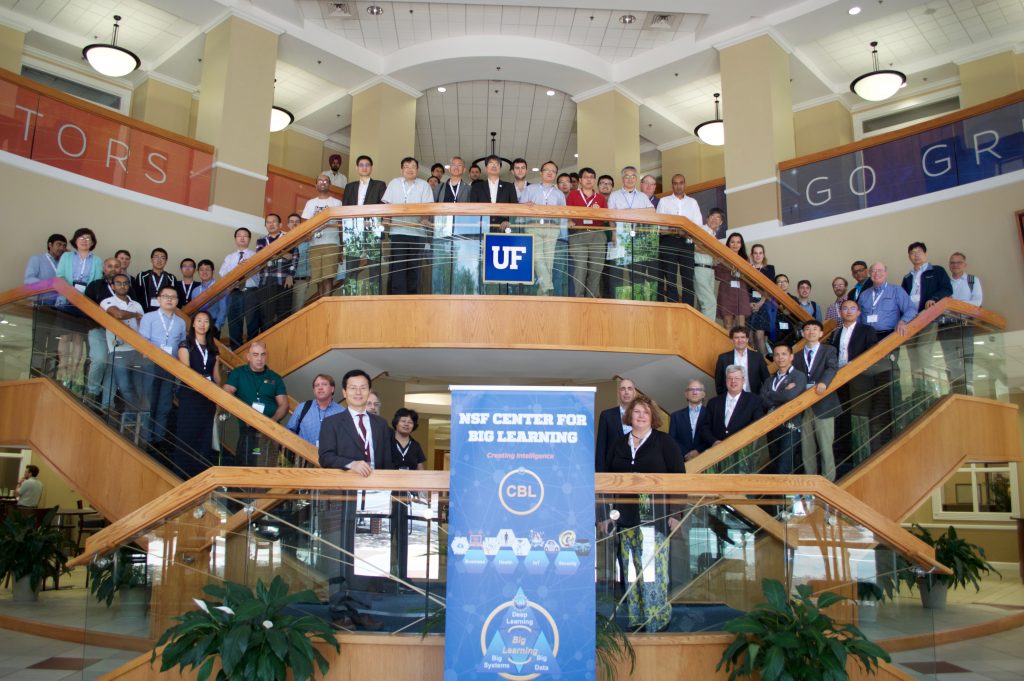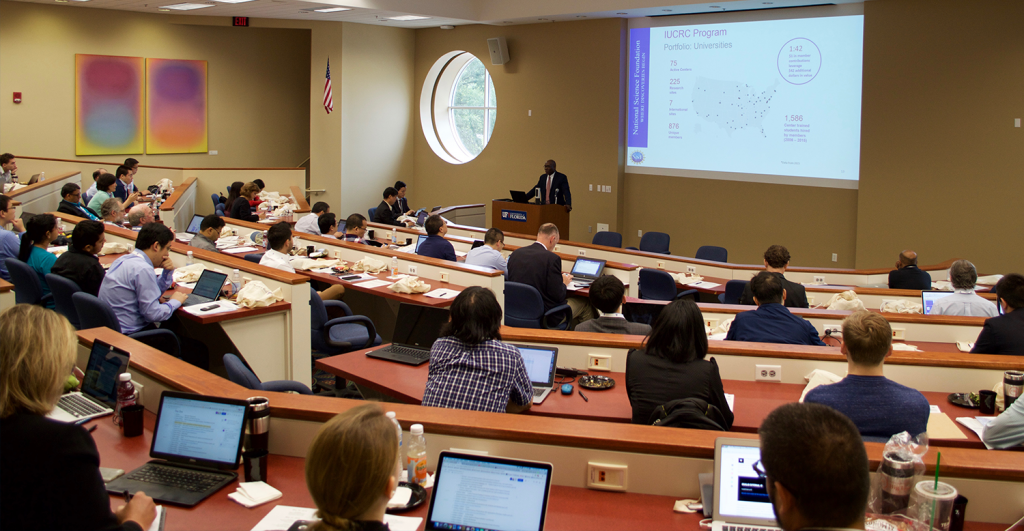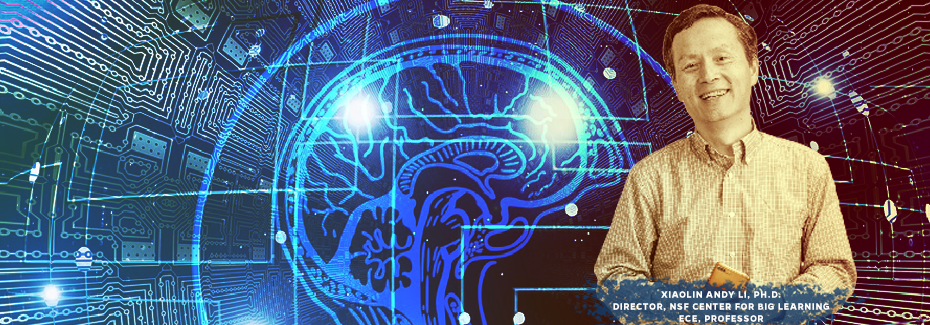The Center for Big Learning at the University of Florida

Industrial revolutions occur when groundbreaking technology, usually originating from academia, gains universal application through industry adoption. That is exactly what is happening at the University of Florida.
The National Science Foundation has funded a Center for Big Learning (CBL), to be directed by Dr. Xiaolin Andy Li, Professor and University Term Professor of Electrical and Computer Engineering at UF’s Herbert Wertheim College of Engineering. The CBL will bring together members of academia and industry to explore the use of big learning for the benefit of the smart society of the future.
Big learning is built on the three pillar technologies:
- Deep Learning (The brain: the driving force of the current artificial intelligence),
- Big Data (The fuel: sources of data, knowledge, and wisdom), and
- Big Systems (The engine: computing power and intelligent platforms via massive computing cores and accelerators).
Deep Learning, a subarea of Machine Learning, allows the algorithms to self-adjust and improve based on data, tasks, and contexts without being specifically programmed. The resulting Artificial Intelligence then brings together myriad small bits of data to readily provide answers to researchers’ questions without the need for separate sets of calculations or data analysis, which can be both time consuming and error-prone due to incorrect data entry.
Creating Intelligence
One of the center-wide projects is to build a common intelligent platform, DeepCloud, to be shared among four academic sites and industry partners. DeepCloud offers developer-friendly programming interfaces and user-friendly graphical interactions for broad intelligent applications with flexible computing resources on CPUs and GPUs.
The goal of one of the CBL projects at UF is to move streams of data from different types of sensors into a shared space where the disparate data can be jointly understood and processed even when there is some missing data. For example, different methods can be used to map rural areas, such as remote sensing and visual surveillance. Using big learning, the information supplied by the different mapping methods can be processed together to produce more accurate maps. Industry partners can adopt the computing algorithm resulting from this work to discover and relate other similar information from dissimilar sources. Advanced location mapping could apply to critical rescue and defense missions. Contributions to more enhanced environmental studies are also possible.
Another area being explored by the CBL is “Deep SLAM: Visual intelligence for navigation and planning”. This project will apply simultaneous localization and mapping (SLAM) algorithms that can be used to help autonomous vehicles determine objects in their path, even if the objects move in and out of view. The software, combined with other advanced smart systems will help ensure safer, more predictable operation of self-driving vehicles.
A Collaborative Partnership

A kick-off meeting for the NSF Center for Big Learning was held at the University of Florida on May 31- June 1, 2018. Pictured: Dr. Dmitri Perkins, NSF Program Director, provides an overview of NSF’s Industry–University Cooperative Research Centers Program (IUCRC)
Added to a $3 million, five-year grant from NSF, nearly 30 industry advocates for deep learning are expected to contribute an additional $7 million to support the big learning projects generated by the Center at UF and three other partner universities who are part of the CBL – Carnegie Mellon University, the University of Missouri at Kansas City and the University of Oregon.
The initial projects cover basic research. “The CBL expects to deliver intellectual properties in terms of patents, software, and other value propositions for our industry members,” said Li. “IAB members will enjoy royalty-free licenses for all intellectual properties generated by the Center at all sites.”
The 30 Industry Advisory Board (IAB) members of the CBL include Baidu, Google, Intel, Nvidia, Lilly, IBM, NetEase, Wells Fargo, Harris, LexisNexis, Ping An, and Tencent, among others. Of the 32 proposals presented at the kickoff meeting held at the University of Florida on May 31, the IAB evinced a high level of interest in at least 20 projects that will move forward as pre-competitive research.
“This NSF funded center offers a one-of-a-kind platform and opportunity for universities and industry to convene over what is clearly recognized as a critically important knowledge-base that will totally change the way humans and machines interact in the future,” said Cammy Abernathy, Ph.D., Dean of the Herbert Wertheim College of Engineering. “Big Learning is not happening in the future. Big Learning must be tackled now, so that the information and processes we gain from the CBL’s research will create new intelligence through collective wisdom and help us construct a new platform for life in the future.”
Li championed the CBL approach, saying, “No single site can offer the broad and deep research expertise, resources and efforts that we will provide from our nearly 100 affiliated faculty members on the four sites.”
The CBL is the first and only NSF center dedicated to deep learning. The number of universities and Industry Advisory Board members affiliated with the center is expected to increase as results of the CBL’s research show the advantages to collaboration in this field.
“Big Learning is not happening in the future. Big Learning must be tackled now, so that the information and processes we gain from the CBL’s research will create new intelligence through collective wisdom and help us construct a new platform for life in the future.”Cammy Abernathy, Dean of the Herbert Wertheim College of Engineering.
